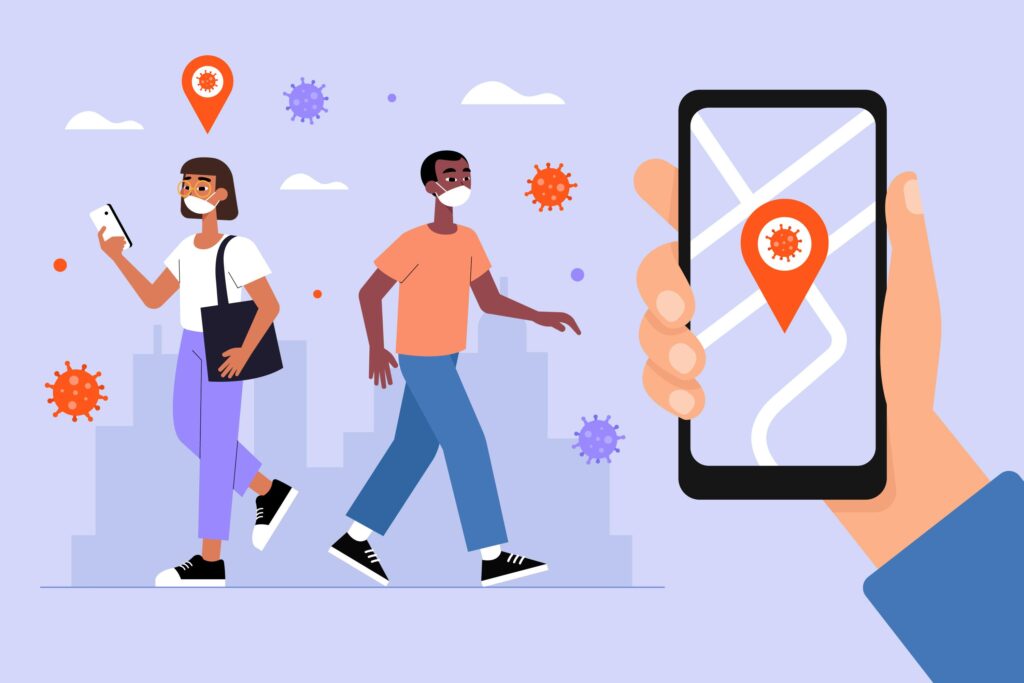In today’s digital age, our smartphones have become an extension of ourselves, containing a wealth of personal information and serving as a gateway to the virtual world. Concerns about privacy and data security are ever-present, with questions about smartphone tracking and location services at the forefront. One common query that arises is whether your phone can be tracked even if you’ve disabled location services. Let’s delve into this intriguing topic to understand the nuances of smartphone tracking and the measures you can take to safeguard your privacy.

Location Services: A Brief Overview
Location services are a feature in smartphones that utilize GPS, Wi-Fi networks, cellular towers, and other technologies to determine your device’s precise geographic location. This functionality powers a wide range of applications, from navigation and weather forecasts to personalized recommendations and social media check-ins.
Can Your Phone Be Tracked with Location Services Off?
The short answer is: it’s considerably more difficult, but not impossible. When you turn off location services on your smartphone, you’re essentially preventing apps and services from accessing your device’s precise location through GPS. This means that apps won’t be able to pinpoint your exact whereabouts and use that information for targeted purposes.
However, it’s important to note that turning off location services doesn’t completely eliminate the possibility of tracking. There are still a few potential ways your phone’s location could be determined:
1. Cell Tower Triangulation: Mobile devices continuously communicate with nearby cell towers to maintain connectivity. Even with location services turned off, your phone’s connection to these towers creates a record of its general proximity to them. This information can be used to estimate your device’s location with varying degrees of accuracy.
2. Wi-Fi Network Connections: When your smartphone connects to Wi-Fi networks, it sends out signals that can be used to determine its location relative to those networks. This method is less accurate than GPS but can still provide a rough idea of your whereabouts.
3. IP Address Tracking: Your device’s IP address is a unique identifier assigned by your internet service provider (ISP). While it doesn’t provide precise location data, it can offer a general idea of the region or city where your device is located.
4. Background Apps and Data Collection: Certain apps may continue to collect location-related data in the background, even if location services are turned off. This data can include Wi-Fi network names, Bluetooth connections, and other information that can indirectly reveal your location.
5. Metadata and Social Media: Metadata embedded in photos and social media posts can provide clues about your location, even if you haven’t explicitly tagged your location. This can be a result of the geotagging feature on your smartphone’s camera or the location settings of social media apps.
How to Enhance Your Smartphone Privacy:
-
Review App Permissions: Regularly review the permissions granted to your apps. Only provide location access when it’s necessary for the app’s core functionality.
-
Use Airplane Mode: Switching your device to airplane mode disables all wireless connections, making it challenging for your phone’s location to be determined.
-
Disable Wi-Fi and Bluetooth: Turning off Wi-Fi and Bluetooth when you’re not using them can prevent your device from broadcasting signals that could be used to estimate your location.
-
Manage Background App Activity: In your phone’s settings, restrict background activity for apps that don’t require it, minimizing the chances of data collection without your knowledge.
-
Adjust Privacy Settings: Review your smartphone’s privacy settings and location services preferences. You can often customize location access for individual apps, allowing you to choose when and how they can use your location.
-
Use VPNs (Virtual Private Networks): VPNs can encrypt your internet connection and mask your IP address, making it more difficult for others to track your online activity.
-
Disable Location for Photos: Turn off location tagging for photos to prevent geotagged data from being embedded in your images.
-
Regularly Clear Location History: If your smartphone has a location history feature, consider clearing it regularly to erase any stored location data.
The Balance Between Convenience and Privacy:
As with many technological advancements, the convenience offered by location services comes with a trade-off in terms of privacy. While the potential for smartphone tracking with location services off does exist, the degree of accuracy and the complexity of the methods involved mean that it’s far more challenging than when location services are enabled.
If preserving your privacy is a top priority, taking proactive measures such as disabling unnecessary wireless connections, managing app permissions, and using privacy-enhancing tools can go a long way. Striking a balance between enjoying the benefits of location-based services and safeguarding your personal information is essential in today’s digital landscape.